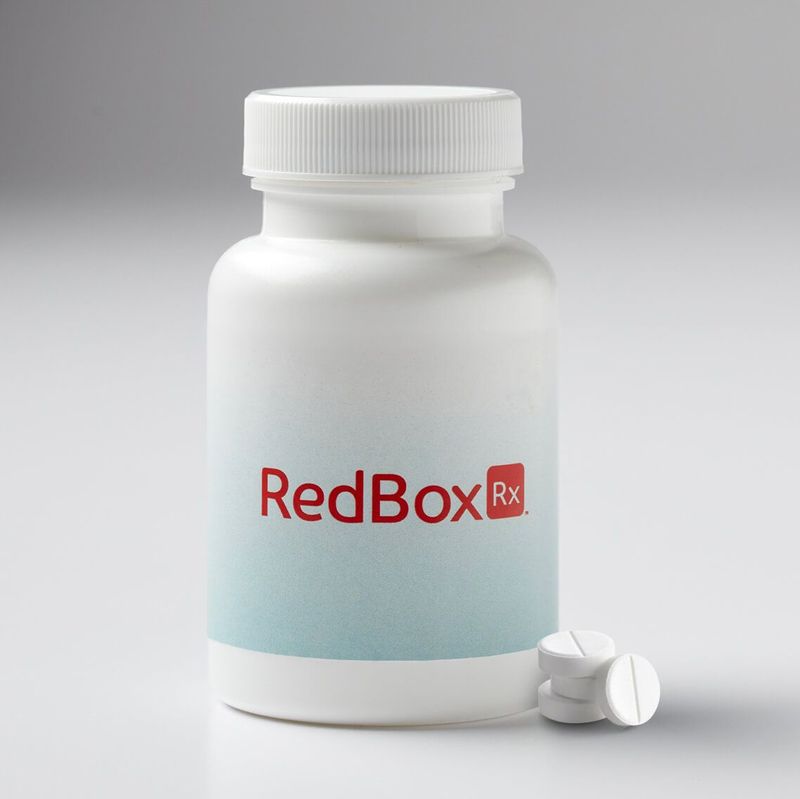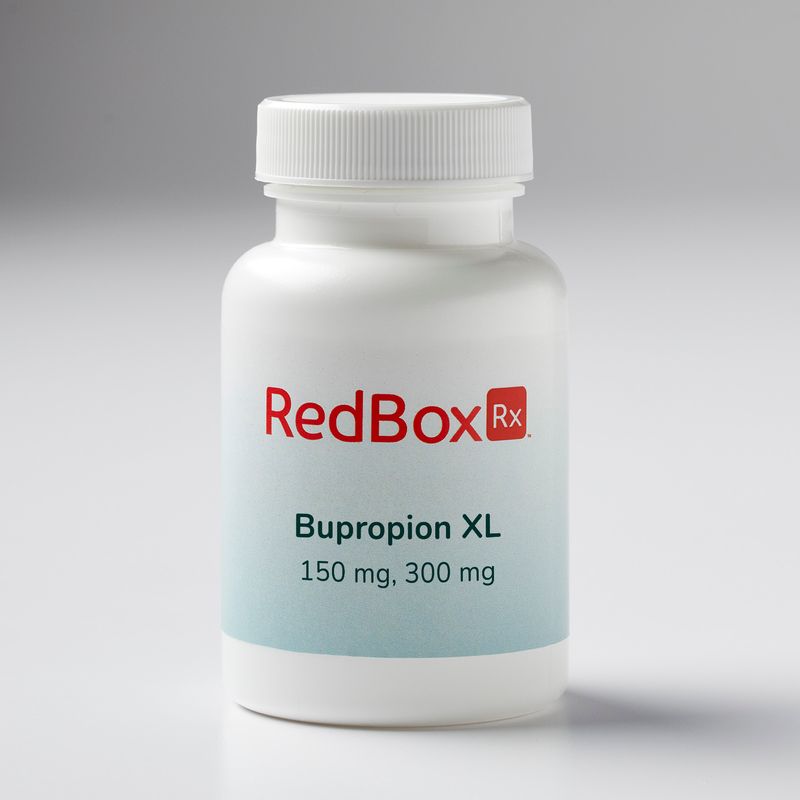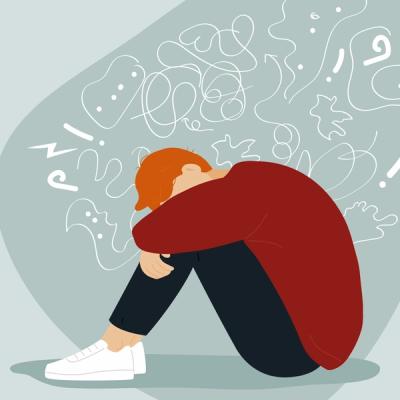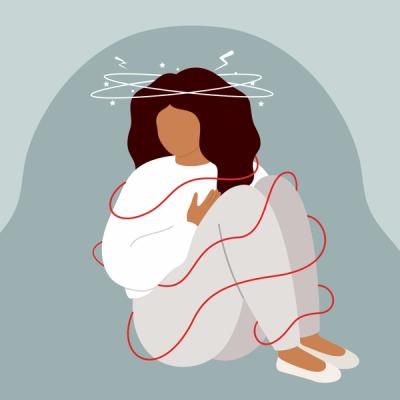Bupropion XL (Generic Wellbutrin XL) FAQs
-
Bupropion XL (Wellbutrin XL) is a medication used to treat depression and seasonal affective disorder (SAD). Bupropion is in a class of medications called atypical antidepressants. It works by increasing certain types of activity in the brain.1
-
Bupropion XL comes as an extended-release tablet to take by mouth. It is usually taken once daily in the morning; doses of the extended-release tablet should be taken at least 24 hours apart. When bupropion is used to treat seasonal affective disorder, it is usually taken once a day in the morning beginning in the early fall, continuing through the winter, and stopping in the early spring. Sometimes a lower dose of bupropion is taken for 2 weeks before the medication is stopped. Take bupropion with food if the medication upsets your stomach. If you have trouble falling asleep or staying asleep, do not take bupropion too close to bedtime. Take bupropion at around the same time(s) every day. Follow the directions on your prescription label carefully and ask your doctor or pharmacist to explain any part you do not understand. Take bupropion exactly as directed. Do not take more or less of it or take it more often than prescribed by your doctor.
Swallow the extended-release tablets whole; do not split, chew, or crush them.
It may take 4 weeks or longer before you feel the full benefit of bupropion. Continue to take bupropion even if you feel well. Do not stop taking bupropion without talking to your doctor. Your doctor may decrease your dose gradually.
-
Before taking bupropion,
tell your doctor and pharmacist if you are allergic to bupropion, any other medications, or any of the ingredients in bupropion tablets. Ask your pharmacist or check the Medication Guide for a list of the ingredients.
tell your doctor if you are taking a monoamine oxidase (MAO) inhibitor such as isocarboxazid (Marplan), linezolid (Zyvox), methylene blue, phenelzine (Nardil), selegiline (Eldepryl, Emsam, Zelapar), and tranylcypromine (Parnate), or if you have stopped taking an MAO inhibitor within the past 14 days. Your doctor will probably tell you not to take bupropion.
do not take more than one product containing bupropion at a time. You could receive too much medication and experience severe side effects. tell your doctor and pharmacist what other prescription and nonprescription medications, vitamins, nutritional supplements, and herbal products you are taking or plan to take. Be sure to mention any of the following: amantadine (Symmetrel); beta blockers such as atenolol (Tenormin), labetalol (Normodyne), metoprolol (Lopressor, Toprol XL), nadolol (Corgard), and propranolol (Inderal); cimetidine (Tagamet); clopidogrel (Plavix); cyclophosphamide (Cytoxan, Neosar); efavirenz (Sustiva, in Atripla); insulin or oral medications for diabetes; medications for irregular heartbeat such as flecainide (Tambocor) and propafenone (Rythmol); medications for mental illness such as haloperidol (Haldol), risperidone (Risperdal), and thioridazine (Mellaril); medications for seizures such as carbamazepine (Tegretol), phenobarbital (Luminal, Solfoton), and phenytoin (Dilantin); levodopa (Sinemet, Larodopa); lopinavir and ritonavir (Kaletra); nelfinavir (Viracept); nicotine patch; oral steroids such as dexamethasone (Decadron, Dexone), methylprednisolone (Medrol), and prednisone (Deltasone); orphenadrine (Norflex); other antidepressants such as citalopram (Celexa), desipramine (Norpramin), fluoxetine (Prozac, Sarafem, in Symbyax), fluvoxamine (Luvox), imipramine (Tofranil), nortriptyline (Aventyl, Pamelor), paroxetine (Paxil) and sertraline (Zoloft); ritonavir (Norvir); sedatives; sleeping pills; tamoxifen (Nolvadex, Soltamox); theophylline (Theobid, Theo-Dur, others); thiotepa; and ticlopidine (Ticlid). Your doctor may need to change the doses of your medications or monitor you carefully for side effects.
tell your doctor if you have or have ever had seizures, anorexia nervosa (an eating disorder) or bulimia (an eating disorder). Also tell your doctor if you drink large amounts of alcohol but expect to suddenly stop drinking or you take sedatives but expect to suddenly stop taking them. Your doctor will probably tell you not to take bupropion.
tell your doctor if you drink large amounts of alcohol, use street drugs, or overuse prescription medications and if you have ever had a heart attack; a head injury; a tumor in your brain or spine; high blood pressure; diabetes; or liver, kidney, or heart disease.
tell your doctor if you are pregnant, plan to become pregnant, or are breast-feeding. If you become pregnant while taking bupropion, call your doctor.
you should know that bupropion may make you drowsy. Do not drive a car or operate machinery until you know how this medication affects you. talk to your doctor about the safe use of alcoholic beverages while you are taking bupropion. Alcohol can make the side effects from bupropion worse.
you should know that bupropion may cause an increase in your blood pressure. Your doctor may check your blood pressure before starting treatment and regularly while you are taking this medication, especially if you also are using nicotine replacement therapy.
you should know that bupropion may cause angle-closure glaucoma (a condition where the fluid is suddenly blocked and unable to flow out of the eye causing a quick, severe increase in eye pressure which may lead to a loss of vision). Talk to your doctor about having an eye examination before you start taking this medication. If you have nausea, eye pain, changes in vision, such as seeing colored rings around lights, and swelling or redness in or around the eye, call your doctor or get emergency medical treatment right away.
you should know that some people have reported symptoms such as changes in behavior, hostility, agitation, depressed mood, and suicidal thoughts (thinking about harming or killing oneself or planning or trying to do so) while taking bupropion to stop smoking. The role of bupropion in causing these mood changes is unclear since people who quit smoking with or without medication may experience changes in their mental health due to nicotine withdrawal. However, some of these symptoms occurred in people who were taking bupropion and continued to smoke. Some people had these symptoms when they began taking bupropion, and others developed them after several weeks of treatment or after stopping bupropion. These symptoms have occurred in people without a history of mental illness and have worsened in people who already had a mental illness. Tell your doctor if you have or have ever had depression, bipolar disorder (mood that changes from depressed to abnormally excited), schizophrenia (a mental illness that causes disturbed or unusual thinking, loss of interest in life, and strong or inappropriate emotions), or other mental illnesses. If you experience any of the following symptoms, stop taking bupropion (Zyban) and call your doctor immediately: suicidal thoughts or actions; new or worsening depression, anxiety, or panic attacks; agitation; restlessness; angry or violent behavior; acting dangerously; mania (frenzied, abnormally excited or irritated mood); abnormal thoughts or sensations; hallucinations (seeing things or hearing voices that do not exist); feeling that people are against you; feeling confused; or any other sudden or unusual changes in behavior. Be sure that your family or caregiver knows which symptoms may be serious so they can call the doctor if you are unable to seek treatment on your own. Your doctor will monitor you closely until your symptoms get better.
-
Unless your doctor tells you otherwise, continue your normal diet.
-
Skip the missed dose and continue your regular dosing schedule. Always allow the full scheduled amount of time to pass between doses of bupropion. Do not take a double dose to make up for a missed one.
-
Bupropion may cause side effects. Tell your doctor if any of these symptoms are severe or do not go away:
drowsiness
anxiety
excitement
difficulty falling asleep or staying asleep
dry mouth
dizziness
headache
nausea
vomiting
stomach pain
uncontrollable shaking of a part of the body
loss of appetite
weight loss
constipation
excessive sweating
ringing in the ears
changes in your sense of taste
frequent urination
sore throat
Some side effects can be serious. If you experience any of the following symptoms or those listed in the IMPORTANT WARNING or SPECIAL PRECAUTIONS sections, call your doctor immediately or get emergency medical treatment:
seizures
confusion
hallucinating (seeing things or hearing voices that do not exist)
irrational fears
muscle or joint pain
rapid, pounding, or irregular heartbeat
If you experience any of the following symptoms, stop taking bupropion and call your doctor immediately or get emergency medical treatment:
fever
rash or blisters
itching
hives
swelling of the face, throat, tongue, lips, eyes, hands, feet, ankles, or lower legs
hoarseness
difficulty breathing or swallowing
chest pain
Bupropion may cause other side effects. Call your doctor if you have any unusual problems while taking this medication.
If you experience a serious side effect, you or your doctor may send a report to the Food and Drug Administration's (FDA) MedWatch Adverse Event Reporting program online (http://www.fda.gov/Safety/MedWatch) or by phone (1-800-332-1088).
-
Keep this medication in the container it came in, tightly closed, and out of reach of children. Store the tablets at room temperature and away from excess heat and moisture (not in the bathroom). Store the suspension at room temperature or in a refrigerator, but do not freeze it. Dispose of any unused suspension after 60 days.
It is important to keep all medication out of sight and reach of children as many containers (such as weekly pill minders and those for eye drops, creams, patches, and inhalers) are not child-resistant and young children can open them easily. To protect young children from poisoning, always lock safety caps and immediately place the medication in a safe location - one that is up and away and out of their sight and reach. (http://www.upandaway.org)
Unneeded medications should be disposed of in special ways to ensure that pets, children, and other people cannot consume them. However, you should not flush this medication down the toilet. Instead, the best way to dispose of your medication is through a medicine take-back program. Talk to your pharmacist or contact your local garbage/recycling department to learn about take-back programs in your community. See the FDA's Safe Disposal of Medicines website for more information if you do not have access to a take-back program: (https://www.fda.gov/drugs/safe-disposal-medicines/disposal-unused-medicines-what-you-should-know)
-
In case of overdose, call the poison control helpline at 1-800-222-1222. Information is also available online at https://www.poisonhelp.org/help. If the victim has collapsed, had a seizure, has trouble breathing, or can't be awakened, immediately call emergency services at 911.
Symptoms of overdose may include the following:
seizure
hallucinating (seeing things or hearing voices that do not exist)
loss of consciousness
rapid or pounding heartbeat
-
Keep all appointments with your doctor.
Before having any laboratory test, tell your doctor and the laboratory personnel that you are taking bupropion.
Do not let anyone else take your medication. Ask your pharmacist any questions you have about refilling your prescription.
If you are taking the extended-release tablet, you may notice something that looks like a tablet in your stool. This is just the empty tablet shell and does not mean that you did not get your complete dose of medication.
It is important for you to keep a written list of all of the prescription and nonprescription (over-the-counter) medicines you are taking, as well as any products such as vitamins, minerals, or other dietary supplements. You should bring this list with you each time you visit a doctor or if you are admitted to a hospital. It is also important information to carry with you in case of emergencies.
-
Aplenzin®
Budeprion® XL
Forfivo® XL
Wellbutrin® XL
-
For people taking bupropion (Wellbutrin) for depression:
A small number of young adults (up to 24 years of age) who took antidepressants ('mood elevators') such as bupropion during clinical studies became suicidal (thinking about harming or killing oneself or planning or trying to do so). Young adults who take antidepressants to treat depression or other mental illnesses may be more likely to become suicidal than young adults who do not take antidepressants to treat these conditions. This risk should be considered and compared with the potential benefit in the treatment of depression, in deciding whether a child or teenager should take an antidepressant. No matter what your age, before you take an antidepressant, you, your parent, or your caregiver should talk to your doctor about the risks and benefits of treating your condition with an antidepressant or with other treatments
You should also talk about the risks and benefits of not treating your condition. You should know that having depression or another mental illness greatly increases the risk that you will become suicidal, especially at the beginning of your treatment or any time that your dose is increased or decreased. This risk is higher if you or anyone in your family has or has ever had bipolar disorder or mania or has thought about or attempted suicide. Talk to your doctor about your condition, symptoms, and personal and family medical history. You and your doctor will decide what type of treatment is right for you.
You should know that your mental health may change in unexpected ways when you take bupropion or other antidepressants even if you are an adult over age 24 or if you do not have a mental illness and you are taking bupropion to treat a different type of condition. You may become suicidal, especially at the beginning of your treatment and any time that your dose is increased or decreased. You, your family, or your caregiver should call your doctor right away if you experience any of the following symptoms: new or worsening depression; thinking about harming or killing yourself, or planning or trying to do so; extreme worry; agitation; panic attacks; difficulty falling asleep or staying asleep; aggressive behavior; irritability; acting without thinking; severe restlessness; and frenzied abnormal excitement. Be sure that your family or caregiver knows which symptoms may be serious so they can call the doctor if you are unable to seek treatment on your own.
For all patients taking bupropion:
Your health care provider will want to see you often while you are taking bupropion, especially at the beginning of your treatment. Be sure to keep all appointments or office visits with your doctor.
Your doctor or pharmacist will give you the manufacturer's patient information sheet (Medication Guide) when you begin treatment with bupropion and each time you refill your prescription. Read the information carefully and ask your doctor or pharmacist if you have any questions. You also can visit the Food and Drug Administration (FDA) website: (http://www.fda.gov/Drugs/DrugSafety/ucm085729.htm) or the manufacturer's website to obtain the Medication Guide.
Talk to your doctor about the risks and benefits of taking bupropion.
-
Bupropion XL and bupropion SR release medications at different speeds and require a different frequency of doses. Bupropion XL is an extended-release tablet that is taken once a day. Bupropion SR releases faster and is often taken twice a day.
Both bupropion SR and bupropion XL are used to treat major depressive disorder (depression or MDD) and as a smoking cessation tool.2 Bupropion XL is also used to treat seasonal affective disorder (SAD).3
-
Bupropion is a norepinephrine and dopamine inhibitor (NDRI). NDRIs work by blocking the uptake of neurotransmitters in the brain to help control mood.
-
Physical symptoms of depression like sleep, energy, or appetite generally start to show improvement within one to two weeks of taking bupropion. Other symptoms of depression including depressed mood and lack of interest in activities can take up to six to eight weeks to show improvement on bupropion.
-
If you stop taking bupropion suddenly, you may experience withdrawal symptoms like irritability, dizziness, headaches, sleep changes, digestive issues, or the return of anxiety and/or depression. Please consult your medical provider for advice on how to safely taper off bupropion.
-
The extended release tablets are designed to last for 24 hours.4
-
RedBox Rx prescribes 150 mg and 300 mg dosages for bupropion XL. Our U.S. licensed medical professionals can help determine the right dosing of bupropion XL, if prescribed. Start an online consult for anxiety and depression to discuss your options.
-
Bupropion XL is $25 per month (with purchase of a 3-month supply) without insurance through RedBox Rx. No membership fees. We’re able to offer low prices because we purchase bupropion directly from manufacturers and ship from our pharmacy in Iowa.
Our online consultation for anxiety & depression costs only $35.
-
Bupropion XL is the generic version of Wellbutrin® XL.
-
Bupropion XL is a medication that must be prescribed by a licensed medical professional. Start an online consult for anxiety and depression to meet with a U.S. licensed medical professional to see if bupropion XL is right for you.
-
We offer a variety of prescription medication options for anxiety and depression including:
-
We offer a variety of prescription medication options for depression including:

Affordable anxiety and depression treatment online.
Your mental health is important. If you’ve been feeling irritable, distracted, or overwhelmed lately, you’re not alone. We provide ongoing mental health support and prescription medication on your schedule.
- No membership or subscription fees.
- Low-cost telehealth consult with a licensed medical provider.
- Medications for $25 per month (with purchase of 3-month supply)
- Confidential, private and secure.
- Free standard shipping or expedited/overnight available.
Sorry, we’re closed for today. Our U.S. licensed medical providers are available daily 7 a.m. to 9 p.m. CST via live video visit. We look forward to serving you soon. Email us anytime at [email protected].
How RedBox Rx Works

Get bupropion XL prescribed online.
Take a 5-minute assessment, then schedule a 20-minute video consultation with one of our experienced, licensed medical providers to determine whether bupropion XL is right for you.
Sorry, we’re closed for today. Our U.S. licensed medical providers are available daily 7 a.m. to 9 p.m. CST via live video visit. We look forward to serving you soon. Email us anytime at [email protected].





